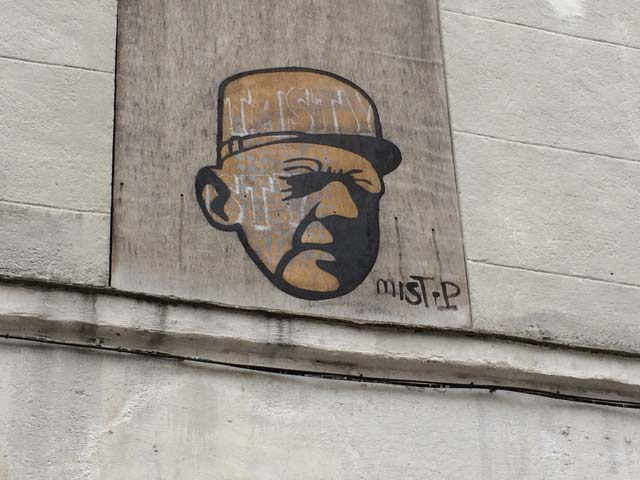
Who would have thought?
There would have been few people in the audience at the first European Championship at the Albert Hall in 1978 who would have thought that nearly 40 years later the event would take place in a hot-spot of brass banding based in a high-speed transport link city in northern France.
Fifth Republic
Then again, there would have been fewer still, as Templemore Band from Northern Ireland took to the stage as the very first band, who would have thought that the contest, which many believed would never see the sun set on British banding pre-eminence, would also be fought out one day against remarkable heavyweight contenders from Norway, Germany, Austria and the Fifth Republic itself.
Serious contenders
However, such has been the progress of Europe’s bands that a straw poll of those sat in the plush seats of the Auditorium Le Nouveau Siecle this weekend wouldn’t bet against contenders from Lithuania and Italy (both in the Challenge Section) becoming serious contenders for the Championship title in the years to come.
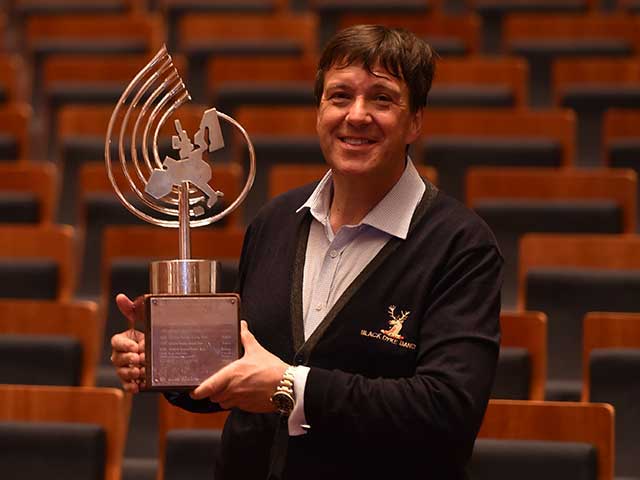
Iconic Trophy: Prof Nicholas Childs gets his hands on the European silverware
Iconic trophy
For the time being though the destination of the iconic Milton Stevens Trophy (which curiously is modeled on a post-Maastricht Treaty map of Europe) lies in the hands of eleven bands from ten countries (Black Dyke returns as defending champion alongside Brighouse & Rastrick) - with the bookies odds fairly evenly balanced between them all.
It’s a high-class field with serious contenders wherever you look - from the returning German champion of Bayerischen Brass Band Akademie to the Scottish representative of Whitburn, with each knowing that they will first have to master the evocative set-work, ‘Fraternity’ by French composer Thierry Deleruyelle.
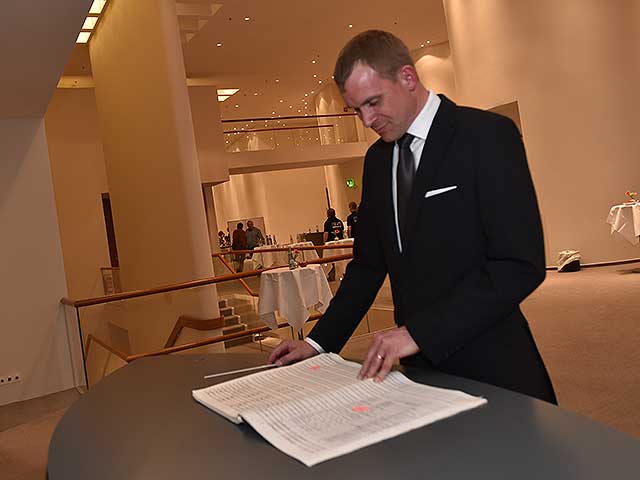
A new winning page to turn for Philip Harper and Cory this weekend?
Popular choice
It has proved to be a popular choice - a bit of a throwback, with a modernist twist to the type of elegant musicianship heard with Morley Calvert’s ‘Introduction, Elegy and Caprice’ which was used at those first Championships in 1978.
Inspired by the tragic circumstances of a 1906 mining disaster in Douai (a short distance from Lille) that claimed over 1,000 lives, it’s written in an open, tonal fashion - eschewing the current trend for high-energy injections of volume and speed for more considered pacing and texture, subtly scored balances and lengthened lyrical lines.
Narrative
The musical narrative sets the scene, tells the tale and recalls the aftermath. It comprises seven linked sections that open mysteriously with cold timbres evoking an early morning trek to the pit head - before building in anxiety and industry as the miners first descend the shaft before starting their shift of work - from the light above to the dark below to extract the coal.
The catastrophe is ignited by a fractured, frenzied forcefulness, the prelude to which is the ghostly on-rush of air through instruments; life or death a matter of luck as the explosion devastates the underground passages that lead from the coal face to the pit head.
Hopes
The solemn task of bringing out the dead leads to a bleak paean of reflection before the piece ends in uplifting fashion in the form of a ‘Fraternity Prayer’ that pays tribute to those lost.
Deleruyelle has said that he hopes each band will be able to identify with something within the piece - a heartfelt request that will surely find resonance given the historic association many bands have to heavy industry and coal mining in particular all over Europe.
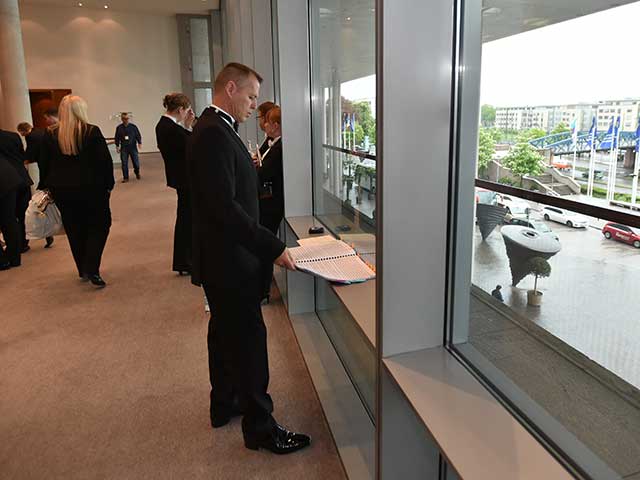
Can David King once again inspire a European victory?
Eardrums
Whilst ‘Fraternity’ should give us all something to reflect on, the selection of own-choice works will invariably give everyone something to clear the eardrums. As has become the norm, blockbusters abound - from the new to the intriguing.
The current trendsetters of Thomas Doss and Oliver Waespi provide three works played by five bands - with the existential psychological delights of ‘Trance’ and Bedlamesque inspired ‘EKSTASE’, to the architectural fusion between urban form and space in ‘Hypercube’ respectively.
Apocalyptic
Meanwhile, historical figures of the Belgian renaissance to sci-fi fantasies of the pre-War German Weimar Republic are recalled in ‘From Ancient Times’ and ‘Metropolis 1927’, whilst the apocalyptic end of the world is summoned in Edward Gregson’s new version of ‘Trumpets of the Angels’.
Homages in a very different, but equally expertly realised forms come with Gregson’s ‘From Distant Memories’ and the new Philip Sparke composition, ‘Raveling, Unraveling’, whilst we also have explorations of moods, emotions, anxieties and meanings of life in ‘Cantata’ by Andrew Duncan and ‘Vita Aeterna Variations’ by Alexander Comitas.
Who will win?
So who will make a mark on the Friday with the trio of judges, Michael Bach (Switzerland), Michael Forsyth (Australia) and Fabrice Millischer (France) and again with Michael Ball (England), Reid Gilje (Norway) and Ivan Meylemans (Belgium) the following day?
It is such a hard one to call - and given the quality of the own-choice playing that invariably comes down to a matter of personal musical preference rather than a clear-cut ‘compare and contrast analysis’, much will depend on which band can really bring the evocative, deeply expressive emotions of the set-work to bear.
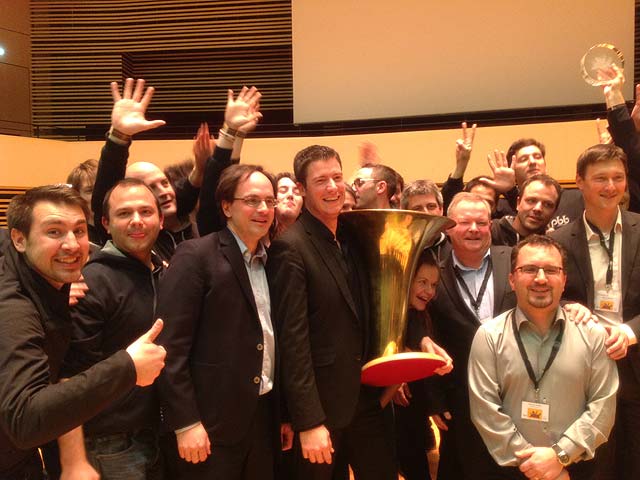
Defending champion Black Dyke is playing with such confidence at the moment that they could well be the band to beat, whilst David King’s return with Brighouse & Rastrick (their first appearance at the contest since 2003) could well be a memorable one.
Cory will be more determined than ever to reclaim the title after missing out in the last two years, whilst Stavanger will hope to become the third Norwegian band to lay claim to the trophy following the past successes of Eikanger Bjorsvik and Manger Musikklag.
The powerful Low Country contenders of Brass Band Buizingen and Provincial Brass Band Groningen cannot be discounted, and neither can the Alpine threats coming from Austrian and Swiss champions Brass Band Oberosterreich and Valaisia Brass Band respectively.
Add to the mix the solid powerhouse talents of Whitburn, Lyngby-Taarbaek and German champion 3BA, and you have a host of bands that can more than push their way into the podium place reckoning at least.
All that of course and we have Paris Brass Band representing the host country. Who would want to bet a few Euros on them not giving the judges plenty to think about come the results?
As for a winner though?
If it goes to form - and it is a big if, then Black Dyke could be the band to beat - although a fire-breathing dragon of Cory, the immensely impressive Swiss of Valaisia and the home country favourites of Paris could push them extremely close.
Brighouse & Rastrick and Stavanger will surely be there or thereabouts with a dark horse emerging on the Austrian horizon with Brass Band Oberosterreich.
4BR Prediction:
1. Black Dyke
2. Cory
3. Valaisia Brass Band
4. Paris Brass Band
5. Brighouse & Rastrick
6. Stavanger
Dark Horse: Brass Band Oberosterreich













